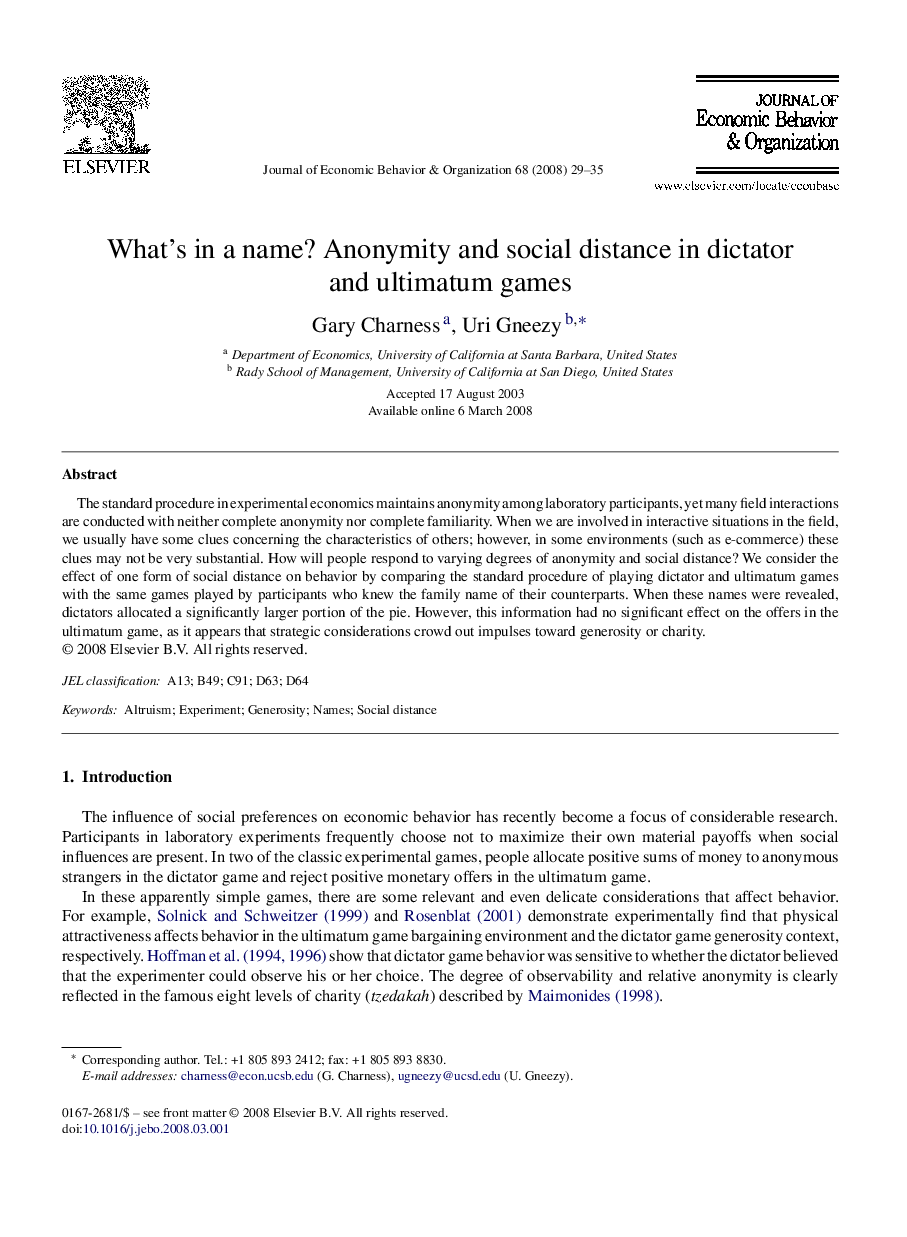| Article ID | Journal | Published Year | Pages | File Type |
|---|---|---|---|---|
| 884486 | Journal of Economic Behavior & Organization | 2008 | 7 Pages |
The standard procedure in experimental economics maintains anonymity among laboratory participants, yet many field interactions are conducted with neither complete anonymity nor complete familiarity. When we are involved in interactive situations in the field, we usually have some clues concerning the characteristics of others; however, in some environments (such as e-commerce) these clues may not be very substantial. How will people respond to varying degrees of anonymity and social distance? We consider the effect of one form of social distance on behavior by comparing the standard procedure of playing dictator and ultimatum games with the same games played by participants who knew the family name of their counterparts. When these names were revealed, dictators allocated a significantly larger portion of the pie. However, this information had no significant effect on the offers in the ultimatum game, as it appears that strategic considerations crowd out impulses toward generosity or charity.
